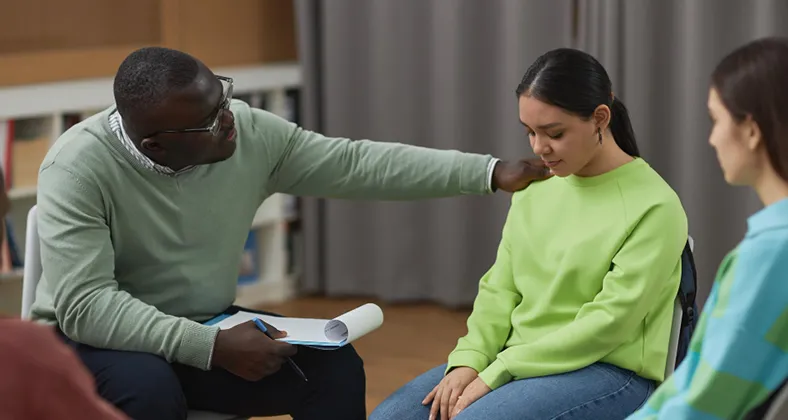If you are the one who deals with past traumas and feels worried about the same, then attachment-based therapy can assist you with it. Attachment-based therapy is a type of therapy in which you use the regulations of attachment theory to oblige you, as the client, to move toward a protected attachment style. According to attachment theory, a newborn’s interactions with the adults who raise them significantly impact how that person develops intimate relationships with other people as an adult. It would be helpful if you continued reading the blog for more information about attachment-based therapy.
What is attachment theory?
This theory has been proposed by the psychologist John Bowlby; it suggests that early relationships shape our interpersonal connections throughout life. They submitted that when this happens, kids create a “secure attachment style” that enables them to grow up normally and build wholesome interactions with other people. Lack of it causes children to develop an insecure attachment style,” which puts them at risk for a variety of behavioural, emotional, and interpersonal issues.
A number of the challenges associated with insecure attachment patterns can arise in early life and include low self-esteem, tantrums, and separation anxiety. Additionally, Bowlby and Ainsworth thought that attachment disorders persist throughout adulthood, increasing the likelihood of anxiety, depression, drug use disorders, and interpersonal conflicts. Attachment theory explores the roots of our emotional connections, revealing the impact of early bonds on our present and future relationships.
How does attachment based therapy work?
The process unfolds in several steps.
First, therapists assess the attachment patterns, identifying any disruptions or insecurities. They then try to establish a therapeutic alliance with the client that is safe and based on trust. Therapists work with clients to examine prior attachment experiences and how they have affected relationships in the present through open conversation and compassionate understanding. Clients gain the ability to identify and appropriately communicate their feelings.
Therapists guide caregivers to provide consistent and responsive support, fostering a secure base for the individual. Examples of interventions are role-playing, communication drills, and techniques for controlling emotions. The aim is to reshape attachment patterns over time to promote healthier connections. This method works exceptionally well for problems like anxiety, depression, and relationship difficulties because it highlights how vital safe emotional connections are to fostering general well-being.
Benefits of Attachment-Based Therapy
There are also some benefits to the attachment-based theory:
- Enhanced emotional regulation
- Optimistic mindset
- A strengthened sense of security and stability
- Better social and communication skills
- Healthier relationships with fewer conflicts
- Enhanced parent-caregiver bonds in children and teens
- Diminished symptoms of depression, anxiety, and other mental health issues
- Through attachment based family therapy, you will improve parenting skills for children and teens.
Attachment-Based Therapy Techniques:
Here are some of the techniques by which attachment therapy works.
Building Trust: The goal of attachment-based therapy is for the patient and therapist to get along well so that the patient feels safe enough to talk about their feelings.
Encouraging Secure Attachment: Strategies focus on developing a secure attachment pattern, enabling a feeling of security and help in interpersonal interactions, and eventually improving mental health in general.
Emotional Regulation Skills: Strategies designed to help clients become more adept at controlling their emotions to handle stress and get through challenging possibilities.
Strengthening and Repairing Attachment Bonds: Attachment therapy for adults aims to strengthen and repair the client’s ability to establish positive relationships with other people by resolving extension bond disturbances.
Communication Enhancement: Therapists enhance communication skills by allowing clients to define their needs and emotions while encouraging active listening.
Examining former relationships: An essential part of therapy is returning to the client’s former relationships, particularly those they grew up in, to identify trends and dynamics that might impact their conduct today.
Mindfulness and Reflection: It also encourages mindfulness to increase self-awareness, enabling more in-depth learning of one’s emotions and relationship responses.
What can attachment therapy training help with?
After undergoing this therapy, you will likely be able to cope with many things. Attachment-based treatment not only helps clients comprehend their relationship patterns better but also trains clients to reflect on the following:
- Creating secure attachments with children through parental support is crucial for developing meaningful relationships.
- Establishing a safe space where emotions and vulnerability are embraced becomes essential in this journey.
- Addressing anxieties and fears of abandonment is pivotal to breaking the cycle of prematurely leaving relationships.
- To break free from the pattern of unhealthy dating and relationships, individuals must work through their deep-seated fears.
- Focusing on providing children with the support needed to develop safe and healthy attachments contributes significantly to their emotional well-being.
- Trauma, mainly stemming from adverse childhood experiences, demands careful processing.
In a Nutshell
It is best to address and get accurate training at the right time if you are dealing with any of those issues. When you make the right decision, it will affect your mind and body and the environment surrounding you. If you are a parent, then there are chances that your family will be affected by the worst decisions. But by taking expert advice, you will enhance your behaviour and communication skills by forgetting the past.
So, what are you waiting for?
Get expert advice immediately to improve your mental heath.

